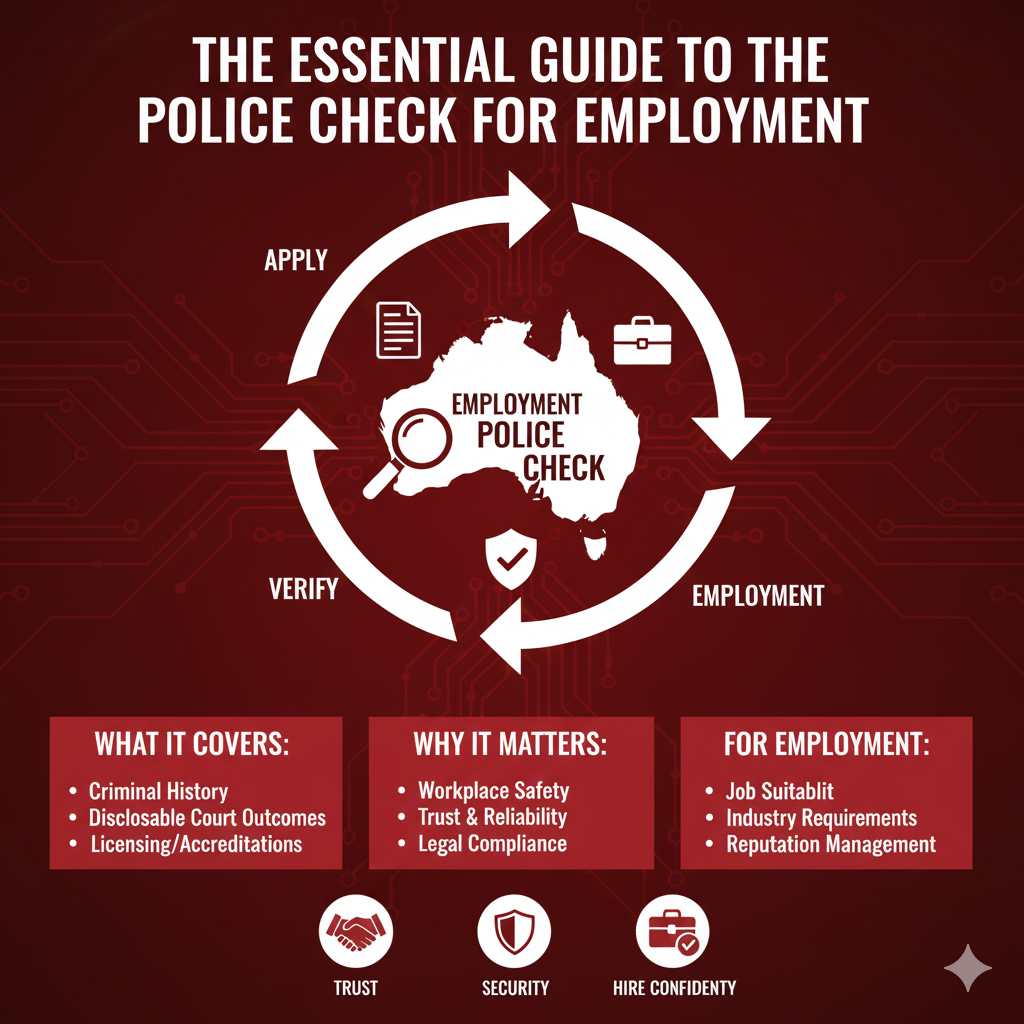To make educated hiring decisions and select the most qualified candidate for the job, employers utilize a variety of techniques. One of the most useful yet underrated methods in this process is the reference check. Often disclosing more than a CV or interview, this crucial phase offers profound information into a candidate’s ability, conduct, and cultural fit.
In this blog, we explore the power of reference checks, why they are vital, and how to use them effectively for long term recruitment success.
Understanding the Power of Reference Checks
Reference checks involve contacting a candidate’s previous employers, colleagues, or supervisors to obtain feedback on their work performance, professionalism, and personality traits. This step goes beyond verification; it gives employers an honest, real world perspective from people who have worked directly with the candidate.
Why Reference Checks Are Often Overlooked
In today’s fast paced hiring world, many employers skip reference checks due to time constraints or assumptions that interviews and background checks are sufficient. However, this shortcut can lead to costly mis hires.
The power of reference checks lies in their ability to:
- Reveal interpersonal skills
- Confirm past achievements
- Detect red flags early
- Ensure cultural alignment
- Validate long term potential
Key Benefits of Conducting Reference Checks
Let’s dive into some of the most compelling reasons why reference checks should never be skipped.
Verification of Information
Candidates may exaggerate roles or responsibilities on their resumes. Reference checks allow you to confirm:
- Job titles
- Employment dates
- Key achievements
- Scope of responsibilities
Why it matters: This helps maintain integrity and ensures you’re not hiring someone based on misrepresented credentials. It can verified through Employment Verification Check.
Deeper Insight into Work Ethic and Attitude
The way a candidate collaborates with others, handles deadlines, and deals with criticism can define their future success in your company.
Ask questions like:
- How did they respond to pressure?
- Were they proactive or reactive?
- How did they handle team dynamics?
These insights help you understand how a candidate will integrate into your work culture.
Uncover Hidden Strengths or Weaknesses
Power of reference checks can provide a more balanced perspective by revealing potential blind spots or underutilized talents, whereas interviews are intended to showcase a candidate’s strengths. A reference might state, for instance, “They battled with tasking early but established an outstanding handling of projects system over time.”
You can evaluate a candidate’s attitude towards advancement and adaptability with the use of these insights.
Evaluate Cultural Fit
Cultural alignment is just as important as qualifications. A highly skilled employee who clashes with the company’s values or communication style can impact team morale.
Reference questions like these can help determine if the person will thrive in your organisation’s culture:
- How well did they adapt to the team environment?
- Were they involved in internal initiatives or leadership programs?
- Best Practices for Conducting Effective Reference Checks
Now that we’ve established the power of reference checks, let’s talk about how to do them the right way. You can also check validity by checking with NDIS requirements.
Prepare a Strategic Question List
Don’t go into a reference call blind. Develop a consistent set of open ended questions that focus on:
- Team collaboration
- Decision making abilities
- Leadership potential
- Reliability and punctuality
Customise questions based on the role you’re hiring for. For example, a sales manager’s reference check should focus on targets, client relationships, and strategy.
Speak to Multiple References
The more perspectives, the better. Speak with a mix of:
- Former direct supervisors
- Peers or team members
- Subordinates (if they managed a team)
This gives you a well rounded picture of the candidate from different angles.
Keep it Professional and Confidential
Always obtain the candidate’s permission before conducting reference checks. Ensure that:
- The conversation stays respectful
- Information shared is kept confidential
- You clarify that it won’t affect the referee in any way
This creates a safer space for honest and constructive feedback.
Combining Reference Checks with Other Hiring Tools
Reference checks are powerful on their own, but they are most effective when used in conjunction with:
Skills Assessments
Pre employment tests give you measurable data, and reference checks help interpret that data with real world context, especially when working in aged care.
Behavioural Interviews
A candidate may provide scripted responses in an interview. Reference checks validate those responses and identify any inconsistencies.
Police Checks and Background Screening
While a national police check confirms legal history, power of reference checks offers insight into soft skills, professionalism, and values. Combining both builds a holistic hiring strategy.
When to Be Cautious: Red Flags in Reference Feedback
While most reference checks are smooth, some may raise concerns. Here are a few red flags to watch for:
- Vague or evasive responses
- Unwillingness to answer basic questions
- Overly negative or overly enthusiastic feedback without detail
- The reference seems unaware of the candidate’s achievements
Use this as a cue to dig deeper, either with the candidate or by seeking additional references.
Addressing Common Myths About Reference Checks
There are several misconceptions that lead organisations to skip reference checks. Let’s debunk a few:
“They’re Just a Form of Confirmation”
Wrong. Reference checks are qualitative evaluations, not just formalities. They provide behavioral and performance related insights that interviews may not capture.
“No One Will Give Honest Feedback”
Many hiring managers assume references won’t disclose anything meaningful. While some might be cautious, open ended and respectful questioning often leads to useful details.
“We Don’t Have Time for That”
Hiring the wrong candidate can cost tens of thousands of dollars. Spending 1 to 2 hours on a reference check is a small investment in avoiding costly mistakes.
The Role of Reference Checks in Risk Management
The power of reference checks extends to risk management. Hiring someone without understanding their past can expose your business to:
- Reputational harm
- Team disruption
- Financial loss due to underperformance
- Workplace conflicts
Pairing reference checks with criminal history checks (such as a national police check) and identity verification creates a more secure hiring process.
Real World Success Stories
At Rapid Screening, we’ve worked with organisations across Australia who transformed their hiring results by integrating structured reference checks into their recruitment workflows.
One client shared that, “We started using reference checks along with our police screening process, and we noticed an immediate drop in turnover. We caught two potentially poor hires before they entered the team, saving thousands in rehiring costs.”
This is just one example of how powerful reference checks can be when applied strategically.
How Rapid Screening Supports Better Hiring
At Rapid Screening, we support businesses with reliable background screening services, including:
- National Police Checks
- Employment History Verification
- Identity Confirmation
- Working with Children Checks
Our platform is easy to use, fast, and fully compliant with national standards. By using our services alongside reference checks, employers can build trustworthy and high performing teams.
Conclusion: Make Reference Checks a Standard Practice
In an age where hiring mistakes are expensive and brand reputation is fragile, the power of reference checks cannot be underestimated. They offer a layer of depth and protection that no interview or test can fully replicate.
- To recap, reference checks help you:
- Verify the accuracy of applications
- Understand real workplace behavior
- Uncover hidden strengths and risks
- Ensure a better team and cultural fit
- Make informed, confident hiring decisions
You may enhance both the hiring process for individual candidates and the long-term well-being of your entire staff by incorporating deliberate, methodical background screening into the hiring process. Don’t neglect this crucial step. The power of reference checks helps to build productive teams.
Frequently Asked Questions (FAQs)
Q) What is the key reason for a reference check?
By getting in touch with the applicant’s former employer or coworkers, reference checks can confirm an applicant’s employment history and performance. Reference checks greatly help employers make informed hiring selections and reveal more about the candidate than an interview.
Q) In what ways do reference checks increase the accuracy of hiring?
A reference check helps to get the information about an applicant that cannot be extracted through an interview, which results in better decisions while hiring candidates.
Q) Is it possible for reference checks to highlight concerns about a candidate?
Indeed. Reference checks can reveal flaws with integrity, frequent absences, or poor collaboration. Employers can determine whether a candidate presents a threat to collaborative efficiency or the company’s reputation by looking for these warning signs.
Q) How many references need to be contacted by an employer?
A minimum of a couple of references should be contacted, preferably a previous supervisor, colleague, and junior (if necessary). This offers a comprehensive assessment of the candidate’s conduct and performance.
Q) During a reference check, what type of questions must be asked?
It is highly recommended should ask unpredictable questions about an applicant’s ability of teamwork, punctuality, and leadership, as these are some important questions as they will indicate how an applicant is going to perform after being hired.
Q) Are reference checks allowed in Australia?
Yes, they are. But it is important to first seek the permission of the candidate before performing these checks. And the information that is gathered through these reference checks must be kept private and safe.
Q) What distinguishes police checks from reference checks?
A police check discloses criminal background, but a reference check concentrates on professional conduct and job performance. Both are necessary for thorough risk management during the employment process.




